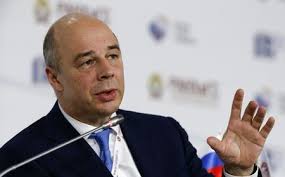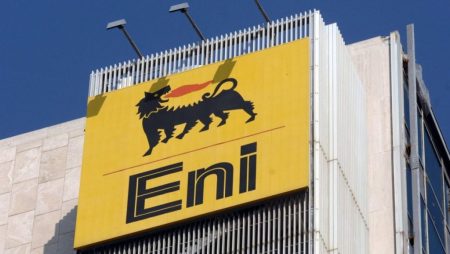29 February 2016, Lagos – Long queues of motorists waiting to buy petrol were noticed in filling stations across the country at the weekend as private oil marketing companies have exhausted the allocations approved by the Petroleum Products Pricing Regulatory Agency (PPPRA) to import petrol for the first quarter of 2016, THISDAY has learnt.

But in a brief statement last night, the Nigerian National Petroleum Corporation (NNPC) assured of sufficient supply of petrol, saying that it had taken delivery of four more cargoes of the product over the weekend.
THISDAY gathered that with the tight supply situation, over 5,000 marketers who paid for NNPC’s products have not been able to load from seven private depots – MRS, Folawiyo, Hyden, Capital Oil, Ascon, Aiteo and NIPCO, which have throughput agreements with the corporation.
PPPRA had approved the importation of 1.5 million tonnes of petrol for private marketers and the Nigerian National NNPC as first quarter fuel import allocations.
While the agency slashed the allocations to private depot owners and marketers by over 70 per cent to 22 per cent, it increased NNPC’s allocation to 78 per cent.
Before this development, private marketers had accounted for 60 per cent of fuel imports, while NNPC was responsible for 40 per cent.
It was gathered that most of the private companies had since exhausted their allocations, hence the queues at filling stations in Lagos.
However, NNPC, which claims to have the capacity to wet the country with products, is faced with logistics challenges, as most of its stock of petrol is in vessels on the high seas, instead of the depots.
A meeting of the depot owners and marketers, which was convened at the PPPRA headquarters in Abuja last Wednesday to address looming shortages could not hold, as senior oil workers under the aegis of the Petroleum and Natural Gas Senior Staff Association of Nigeria (PENGASSAN) had sealed the agency’s headquarters in protest against the appointment of two acting executive secretaries for the agency.
Following the sack of the heads of 25 agencies, including the immediate past Executive Secretary of PPPRA, Mr. Farouk Ahmed by President Muhammadu Buhari, Farouk had handed over to the most senior person in the agency, Mr. Moses Mbaba in line with government’s directive.
But a few hours later, the Ministry of Petroleum was said to have sent NNPC’s Manager in charge of HSE, Mr. Sotonye Iyoyo to take over as the Executive Secretary of PPPRA, a development which prompted PENGASSAN to seal off the headquarters of the agency in protest.
THISDAY, however, gathered that the scheduled meeting was shifted to PPMC’s office at NNPC Towers later in the evening of the same day.
A source privy to the meeting told THISDAY that the meeting, which also discussed the issue of access to foreign exchange by oil marketers, was however, inconclusive and would be reconvened this week.
Some of the marketers, who spoke to THISDAY, blamed the long queues on lack of import allocations to the marketers.
“For the past three to four weeks, we have been loading at 30 per cent of our installed capacity. Some people, who paid since November 2015, have not been able to lift from the depots. PPPRA’s allocation process, which gave NNPC almost 80 per cent, affected the volume of products in the system,” said one of the marketers.
Though the NNPC assured the public that it has enough products in the system, it was gathered that the products are in vessels on the high seas and not in the depots.
NNPC’s spokesman, Mr. Ohi Alegbe, however, said last night that the deliveries of the four cargoes, which amount to about 180 million litres is part of a new arrangement by the corporation to have a cargo of petrol delivered daily as from March.
Alegbe quoted the Minister of State for Petroleum Resources, Dr Ibe Kachikwu, as warning depot owners against selling petrol above the approved ex-depot price of N77 per litre.
The warning comes against the backdrop of repeated complaints by marketers of sharp practices at the depots.
Meanwhile, the federal government is at the current pump price of N86.50 per litre of petrol which it approved for independent petrol marketers and N86 per litre for stations operated by the Nigerian National Petroleum Corporation (NNPC), making an over-recovery of N16.97k and N16.30k respectively from oil marketers.
THISDAY yesterday in Abuja discovered from the pricing template for petrol which the PPPRA released on February 20, that the open market price of the product for both independent marketers and NNPC was N69.53k and N69.70k respectively.
The open market price for NNPC includes the landing cost per litre which is N50.42k plus other margins costs of N14.30k, while that of the independents is N55.23k plus N14.30k.
This then suggests that for every litre of petrol that was imported into the country from the effective date of the template which was February 20, Nigerians would be paying either N16.97k or N16.30k in excess of the actual market price of petrol depending on their preferred purchase points of either NNPC or independent stations.
This development is also backed by the price modulation mechanism for petrol which the government introduced in place of outright deregulation of the product.
The pricing template is managed by the PPPRA whose headquarter in Abuja is currently shutdown from operating following recent disagreements between the government and oil workers union, the Petroleum and Natural Gas Senior Staff Association of Nigeria (PENGASSAN) over choices of persons to act as its head after the government sacked its previous head.
Further calculations which are based on the fundamentals from the template showed that the government may be earning every day from such over-recovery up to N678.8 million and N652 million either way from independent marketers or the NNPC at the estimated 40 million litres national petrol consumption level.
By market definition, an over recovery is a situation where marketers sell petrol above what the actual market price should be after taking into cognisance all market pricing factors, and then make in excess of their profit margin stipulated by government in the pricing template. The opposite is under recovery.
However, the current low prices of crude oil guarantee such over-recovery.
The template data also shows that lightering expenses remain N2.02, the Nigerian Parts Authority (NPA) charges is retained at N0.36, jetty throughput charges – N0.60, and storage charge – N2.00.
Others are retailers’ margin which is N5.0 per litre, transporters and dealers margins put at N3.05 and N1.95 respectively, as well as the bridging fund which is pegged N4.00 per litre, Marine Transport Average (MTA) and administrative charge are put at N0.15k respectively.
The ex-depot prices are N72.20k and N71.70k per litre respectively for the independents and the NNPC.
Already, the immediate past Executive Secretary of the PPPRA, Mr. Farouk Ahmed, had disclosed that a total sum of N2.6 billion had as at February 12, accrued into a special account in the CBN as over-recovery earnings from the operation of the price modulation regime.
“As at February 12, 2016, because we verify based on what was imported, about N2.6 billion has accrued to that account. The fund is still low because most of the cargoes arrived in December last year. The PPPRA has already communicated to the appropriate authorities that we are in the regime of over-recovery.
“Indeed as at Tuesday close of market, the subsidy on petrol was N13.81k over-recovery. The PPPRA would now send a debit note to every marketer that falls within that bracket to refund the money to government.
“There is already an account with the CBN, which is managed by the Accountant General of the Federation where all over-recovery funds are deposited. So, there is no question about where does the money from over-recovery money goes into,” Ahmed stated when he handed over upon his removal from office.
– This Day



